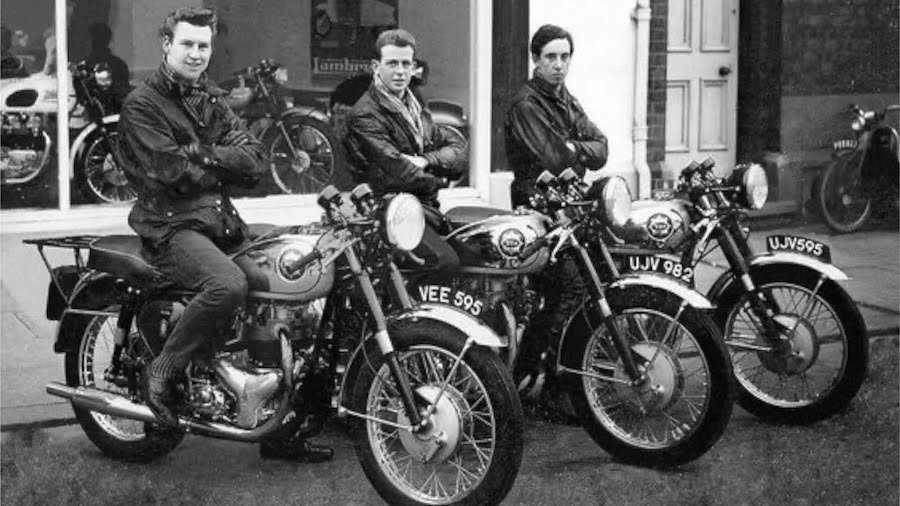Soak Up Some British Moto History In This Fascinating Documentary

It’s hard to overstate the influence that British motorcycle design had on global motorbiking throughout the 20th century. There’s a lot more to it than just styling cues, the Ace Café, and Mods vs. Rockers, though. While those are important parts, there’s a fascinating depth and insight that appears in this BBC documentary that you don’t always see. If you love history—motorcycling or otherwise—it offers the kind of insights that are basically catnip.
The thing is, although so many millions of riders are joined by our love of two wheels, no matter where we may be located in the world—we've all come to that love from different angles. In the U.K. early motorcycles were an inexpensive way to get around when paved roads weren’t as common as they are now.
That part may sound familiar in other places, but here's where it takes its own path. Road racing—such as the Isle of Man TT—developed as a way not only for the speed-obsessed to pursue their passion, but also as a way to demonstrate motorbike reliability in a time when it was anything but a given.
When WWII rolled around, Norton—which had previously dominated for years at the TT—pulled out to devote its resources to making machines for the British war effort. Meanwhile, BMW came in, won the Senior TT, and used that opportunity to showcase its shaft-driven might in ways it hoped would be more than mere allegory.
British dispatch riders relied on BSAs and Nortons to take critical messages hither and thither throughout the war, and British motorcycle manufacturers supplied over 400,000 machines for the effort by its conclusion. That’s a LOT of bikes, and a lot of surplus military bikes that found their way into civilian hands once the fighting was over. As paved roads and automobiles rose in popularity, seeds of that two-wheeled love were left to blossom in the next generation.
All of what went before helped set the stage for the more recent, popular history of ton-up boys, cafe racers, rockers, mods—the stuff we all know. It’s part of both British motorcycling history in specific, and global motorcycling history overall. As someone who didn’t grown up with this facet of riding culture all around, it’s fascinating to learn about.
Related News
